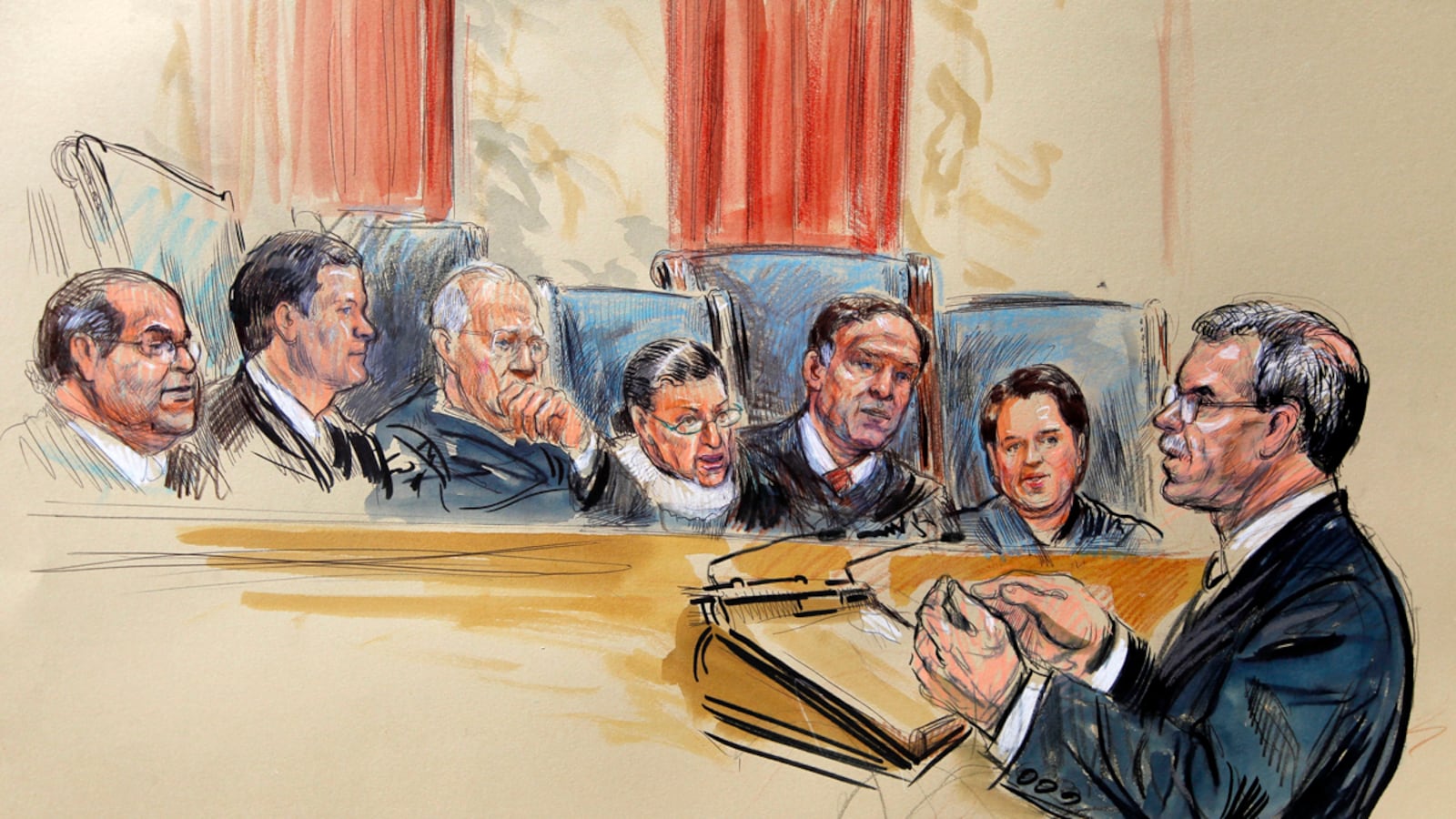You might think there’s only one way things could have gone worse for Solicitor General Donald Verrilli, the man who stammered and struggled and otherwise blew his oral defense of the Affordable Care Act before the Supreme Court this week.

It could have been on camera.
“Solicitor General Donald B. Verrilli Jr. should be grateful to the Supreme Court for refusing to allow cameras in the courtroom,” a reporter for Mother Jones wrote shortly after, “because his defense of Obamacare on Tuesday may go down as one of the most spectacular flameouts in the history of the court.”
For decades, the Supreme Court has refused to televise its proceedings, arguing that video cameras would be distracting, encourage grandstanding by justices, and allow snippets of argument to be taken out of context by a voracious news media. Microphones are regarded with only slightly less suspicion. Live radio broadcasts are forbidden, and audio recordings are released at the end of each week. (Until 2010, they were released only at the end of each term.) When Chief Justice John Roberts authorizes their same-day release—as he did this week, for the historic Obamacare case—it is considered a major concession.
As the Justices see it, what happened to Verrilli this week is a preview of what might occur if they relax their rules. A BuzzFeed compilation of his every cough and stumble has been viewed more than 80,000 times, and the Republican National Committee turned the excruciating audio into an attack ad. (It turned out to be partially doctored.)
To the Justices, this “will illustrate how misused any kind of media of the court’s proceedings can be, and will probably reinforce the idea that video would be even worse,” says Washington attorney Kevin Russell, who has appeared before the high court seven times.
But Russell says that in the case of the stammering Solicitor General, video might actually have helped. Russell was in the courtroom for Verrilli’s performance, and says that his first stumble—which in the audio recording sounds like an awkward sip of water before he has barely gotten any words out—looked unremarkable in person. “I was there—if you’d had the video, it would have been much more understandable,” Russell says. “It was just a frog in his throat. If you’d have been able to see that, it would have been much harder to lampoon him in the way that so many people did. In fact, you would have had a more accurate record of what happened in the courtroom.”
Pushing the Supremes to allow cameras is a perennial topic in Washington. Brian Lamb, the outgoing CEO of C-SPAN, has been advocating it for 24 years. Sen. Dick Durbin (D-Ill.) last year introduced the Cameras in the Courtroom Act of 2011—just as similar legislation was introduced in the 111th Congress, the 110th, the 109th, and several before. Major cases like this week’s tend to elicit rounds of op-eds and newspaper editorials.
“The practical effect of the court’s decision not to televise the hearings is that most Americans will learn about the case from pundits, in the crossfire manner of cable TV, in terms likely to reinforce political biases,” The Boston Globe wrote this week. “The chance that average citizens will reconsider their positions based on legal arguments is greatly diminished.” A C-SPAN (PDF) poll released last week showed 74 percent of Americans wanted SC-TV.
Despite this constant pressure, the Justices—the older ones, at least—are adamant. Justices Stephen Breyer, Antonin Scalia, and Clarence Thomas have spoken out against cameras, and Chief Justice John Roberts has repeatedly shot down the idea. The junior members of the court, though, Justices Elena Kagan and Sonia Sotomayor, say they welcome them. Donald Verrilli, ending a week in his legal career that he’d probably like to forget and pondering what might have been, may have a similarly divided opinion.






